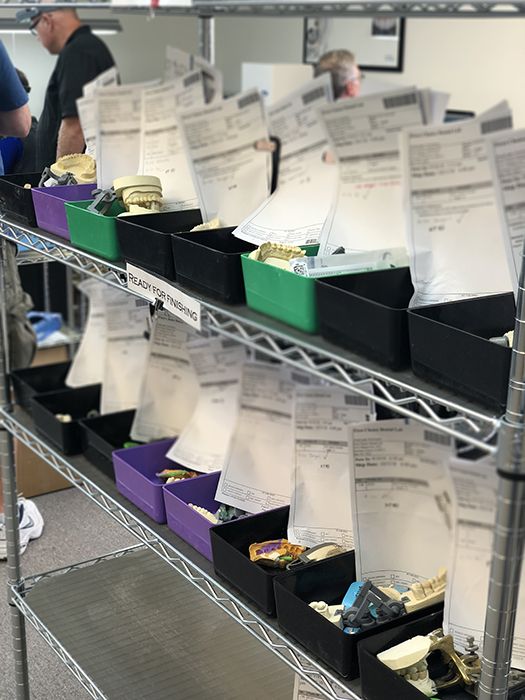Every reliable dental laboratory wants to ensure the quality of outgoing and incoming cases.
From owners and managers to bench technicians, the number-one priority for every case we touch is manufacturing dental prosthetics, restorations, and appliances that meet or exceed the standards of the dental profession, and the expectations of both the you and your patient.
Quality Assurance: The Key to Consistency and Satisfaction
Quality assurance programs in dental labs serve a variety of purposes: Minimization of remakes, a clear understanding of your work orders, assurance of lab personnel competence, safety and infection control, documentation of protocols, tracking material sources, and nurturing our relationships with you.
With solid programs in place, you’ll ably provide the final dental products to your patients with full confidence in the quality and reliability of our work.
Recent Article: How to Adjust & Polish Zirconia Dental Restorations
A University of Louisville study identified poor communication between clinicians and lab technicians as the most frequent problem that leads to poor outcomes for dental lab cases. Unclear or ambiguous orders led to mistakes by the lab, costly remakes, and patient dissatisfaction.
On the flip side, the implementation of a standardized quality assurance process improved overall communication of clinic-to-lab communication, and lowered the rate of errors.
The report also revealed several additional positive outcomes. Better communication between clinicians and lab technicians resulted in significant remake reduction, and led to better patient satisfaction. And, the use of standardized audit checklists for both incoming and outgoing lab cases improved quality, efficiency, and treatment planning outcomes.
How Labs Establish QA Programs
A robust dental laboratory quality assurance program solves many outcome problems.
The most credible dental labs follow standard protocols to review incoming cases, which identifies potential problems before the technicians create cases. It begins with a clear, concise work order, followed by adequate casts, preps, impressions, bite registrations, and other materials supplied by the clinician.
Furthermore, quality assurance procedures include reviews that follow each step completed during the fabrication process. A final review, usually conducted by using a checklist, occurs before returning the case to the dentist.
Recent Article: Why You Should Go Digital With IOS Dentistry
Following standardized quality assurance protocols for every case, every time, ensures consistent, reliable outcomes for every case that leaves the lab.
Bringing It All Together
It’s critical for an ethical, reliable dental laboratory to implement a vigorous quality assurance program.
Such a program should include:
- a standardized protocol for quality assessment for both incoming and outgoing cases;
- an honest assessment of any issues that arise;
- a strategy for resolving those issues to ensure that those resolutions become a standard part of staff education;
- and, the implementation of changes to minimize the recurrence of those same issues.
In addition to a case-specific quality assurance program, labs must also develop protocols and policies that meet standards of outside regulatory and accreditation agencies, such as the FDA, OSHA, and professional certification organizations.
At First Choice Dental Lab®, we take pride in the quality of our work and the skills of all our staff, from our entry-level model technicians, to our experienced lab directors.
Complete the form below today, or send us your case (it’s on us!)!
We’re more than just a dental lab – we’re here to help you give people a reason to smile!
Bibliography
http://www.jdentaled.org/content/78/2/195
https://nbccert.org/pdfs/CDLApplication.pdf
https://dentistry.uic.edu/sites/default/files/IMCE/intranet/chairside/Checklist-FixedProsth.pdf

